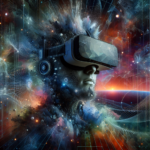Exploring AI Reasoning Through NPR’s Sunday Puzzle Challenges
Introduction to NPR’s Sunday Puzzle
Each Sunday, listeners gather around to delve into the captivating world of the Sunday Puzzle, hosted by Will Shortz, who is also well-known for his role with The New York Times crossword. This iconic segment challenges participants with brainteasers crafted to be solvable with just general knowledge. While these puzzles seem approachable, they’re often quite challenging, even for experienced puzzlers.
Why Scholars Are Focusing on the Sunday Puzzle
Academics are increasingly recognizing the potential of these puzzles in evaluating the reasoning skills of artificial intelligence (AI). A recent study led by collaborative scholars from institutions like Wellesley College, Oberlin College, the University of Texas at Austin, Northeastern University, Charles University, and the tech startup Cursor introduced a benchmarking system inspired by the riddles found in the Sunday Puzzle.
Insights from the Research Study
The study uncovered fascinating findings related to reasoning models, notably OpenAI’s o1. A key observation was that these models occasionally “give up” and generate incorrect answers. According to Arjun Guha, a computer science professor at Northeastern University and a co-author of the research, “We aimed to create a benchmark featuring problems that anyone can understand through basic knowledge.”
Challenges in AI Benchmarking
The AI landscape currently faces a benchmarking dilemma. Numerous established tests focus mainly on advanced knowledge, such as PhD-level math or science, which aren’t applicable to everyday users. Moreover, many of these benchmarks are reaching their limits, reducing their practicality.
The Sunday Puzzle provides several noteworthy benefits:
- It is accessible, requiring no specialized expertise.
- The structure of the puzzles prevents models from solely relying on rote memory to find solutions.
What Distinguishes These Puzzles?
Guha explains that the challenge of the puzzles often lies in the complexity of problem-solving. He mentioned, “Making meaningful progress is tough until you fully solve the problem; that’s when everything aligns simultaneously.” This approach necessitates a combination of insight and deduction.
Limitations of the Sunday Puzzle Benchmark
While the Sunday Puzzle benchmark shows promise, it is not without limitations. The puzzles cater primarily to a U.S. audience and are available only in English. Additionally, since the quizzes are publicly accessible, there’s a chance that models trained on them could take advantage of this knowledge. Nevertheless, Guha points out that new puzzles are introduced weekly, ensuring that the most recent challenges are initially unfamiliar to the models.
He added, “We plan to keep the benchmark dynamic and monitor how model performance evolves over time.”
AI Model Performance on the Benchmark
The researchers’ benchmark comprised about 600 Sunday Puzzle riddles. Different reasoning models were assessed, with OpenAI’s o1 and DeepSeek’s R1 standing out as top contenders. These reasoning models have the added advantage of fact-checking their answers prior to presenting results, which helps them avoid the common traps other AI systems fall into. However, this careful checking often leads to longer response times, ranging from several seconds to multiple minutes.
Quirky Behavior Observed in AI Models
Interestingly, some models display odd behaviors when tackling the Sunday Puzzle challenges. For instance, DeepSeek’s R1 occasionally admits its limitations by stating verbatim, “I give up,” before offering an arbitrary incorrect answer. This reaction mirrors the experiences many humans encounter when confronted with tough questions.
Moreover, other quirky behaviors include:
- Providing a wrong answer only to quickly take it back.
- Becoming “stuck” in contemplation indefinitely.
- Offering nonsensical explanations for their responses.
- Reaching a correct answer but then exploring other incorrect alternatives without clear justification.
Emulating Human Frustration in AI
Notably, R1 even shows signs of frustration when faced with difficult tasks. Guha commented, “On challenging problems, R1 literally expresses frustration.” This mirroring of human emotions adds a compelling layer to our understanding of AI reasoning and underscores the ongoing struggles in advancing these models.
Current Metrics for Model Performance
As it stands, the leading model in this benchmarking exercise is OpenAI’s o1, achieving a performance score of 59%. Close behind is the recently launched o3-mini, registering 47% at high reasoning effort. DeepSeek’s R1 follows with a score of 35%. The research team is keen to broaden their evaluations to include more reasoning models in their studies, aiming to uncover additional areas in need of improvement.
Significance of Accessible Reasoning Benchmarks
Guha highlights the crucial need for reasoning benchmarks that don’t require an advanced academic background. He emphasized, “You don’t need a PhD to be proficient at reasoning; thus, we should design benchmarks that reflect this level of accessibility.” Establishing accessible benchmarks enables a wider array of researchers to interpret and analyze results, ultimately fostering the development of superior AI models. As these sophisticated systems integrate further into daily tasks and decision-making, it becomes essential for everyone to grasp their capabilities and limitations.




0 Comments